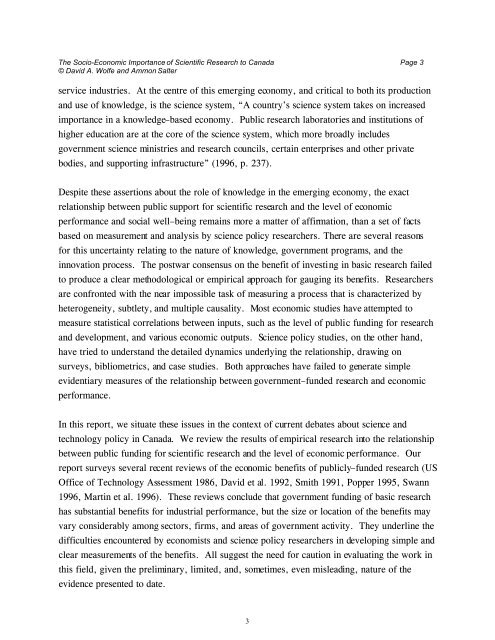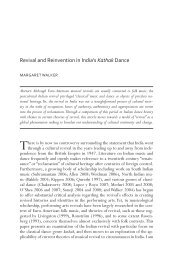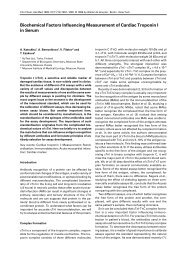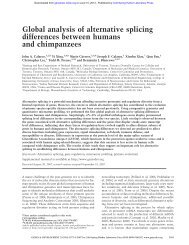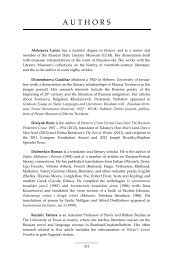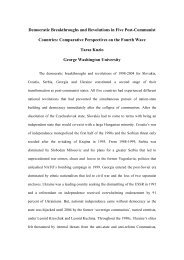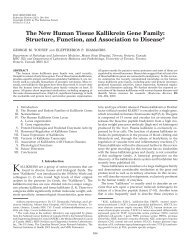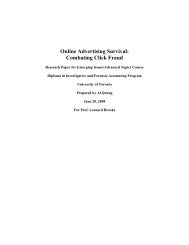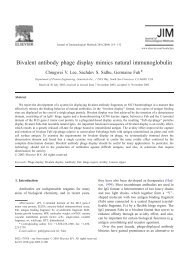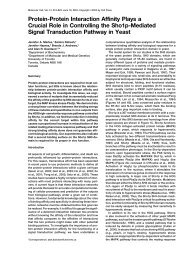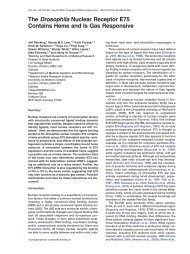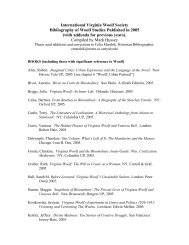The Socio-Economic Importance of Scientific Research To Canada
The Socio-Economic Importance of Scientific Research To Canada
The Socio-Economic Importance of Scientific Research To Canada
Create successful ePaper yourself
Turn your PDF publications into a flip-book with our unique Google optimized e-Paper software.
<strong>The</strong> <strong>Socio</strong>-<strong>Economic</strong> <strong>Importance</strong> <strong>of</strong> <strong>Scientific</strong> <strong>Research</strong> to <strong>Canada</strong> Page 3© David A. Wolfe and Ammon Salterservice industries. At the centre <strong>of</strong> this emerging economy, and critical to both its productionand use <strong>of</strong> knowledge, is the science system, “A country’s science system takes on increasedimportance in a knowledge–based economy. Public research laboratories and institutions <strong>of</strong>higher education are at the core <strong>of</strong> the science system, which more broadly includesgovernment science ministries and research councils, certain enterprises and other privatebodies, and supporting infrastructure” (1996, p. 237).Despite these assertions about the role <strong>of</strong> knowledge in the emerging economy, the exactrelationship between public support for scientific research and the level <strong>of</strong> economicperformance and social well–being remains more a matter <strong>of</strong> affirmation, than a set <strong>of</strong> factsbased on measurement and analysis by science policy researchers. <strong>The</strong>re are several reasonsfor this uncertainty relating to the nature <strong>of</strong> knowledge, government programs, and theinnovation process. <strong>The</strong> postwar consensus on the benefit <strong>of</strong> investing in basic research failedto produce a clear methodological or empirical approach for gauging its benefits. <strong>Research</strong>ersare confronted with the near impossible task <strong>of</strong> measuring a process that is characterized byheterogeneity, subtlety, and multiple causality. Most economic studies have attempted tomeasure statistical correlations between inputs, such as the level <strong>of</strong> public funding for researchand development, and various economic outputs. Science policy studies, on the other hand,have tried to understand the detailed dynamics underlying the relationship, drawing onsurveys, bibliometrics, and case studies. Both approaches have failed to generate simpleevidentiary measures <strong>of</strong> the relationship between government–funded research and economicperformance.In this report, we situate these issues in the context <strong>of</strong> current debates about science andtechnology policy in <strong>Canada</strong>. We review the results <strong>of</strong> empirical research into the relationshipbetween public funding for scientific research and the level <strong>of</strong> economic performance. Ourreport surveys several recent reviews <strong>of</strong> the economic benefits <strong>of</strong> publicly–funded research (USOffice <strong>of</strong> Technology Assessment 1986, David et al. 1992, Smith 1991, Popper 1995, Swann1996, Martin et al. 1996). <strong>The</strong>se reviews conclude that government funding <strong>of</strong> basic researchhas substantial benefits for industrial performance, but the size or location <strong>of</strong> the benefits mayvary considerably among sectors, firms, and areas <strong>of</strong> government activity. <strong>The</strong>y underline thedifficulties encountered by economists and science policy researchers in developing simple andclear measurements <strong>of</strong> the benefits. All suggest the need for caution in evaluating the work inthis field, given the preliminary, limited, and, sometimes, even misleading, nature <strong>of</strong> theevidence presented to date.3


